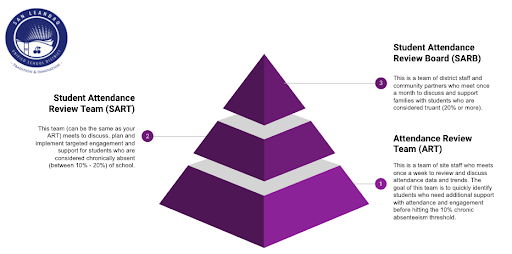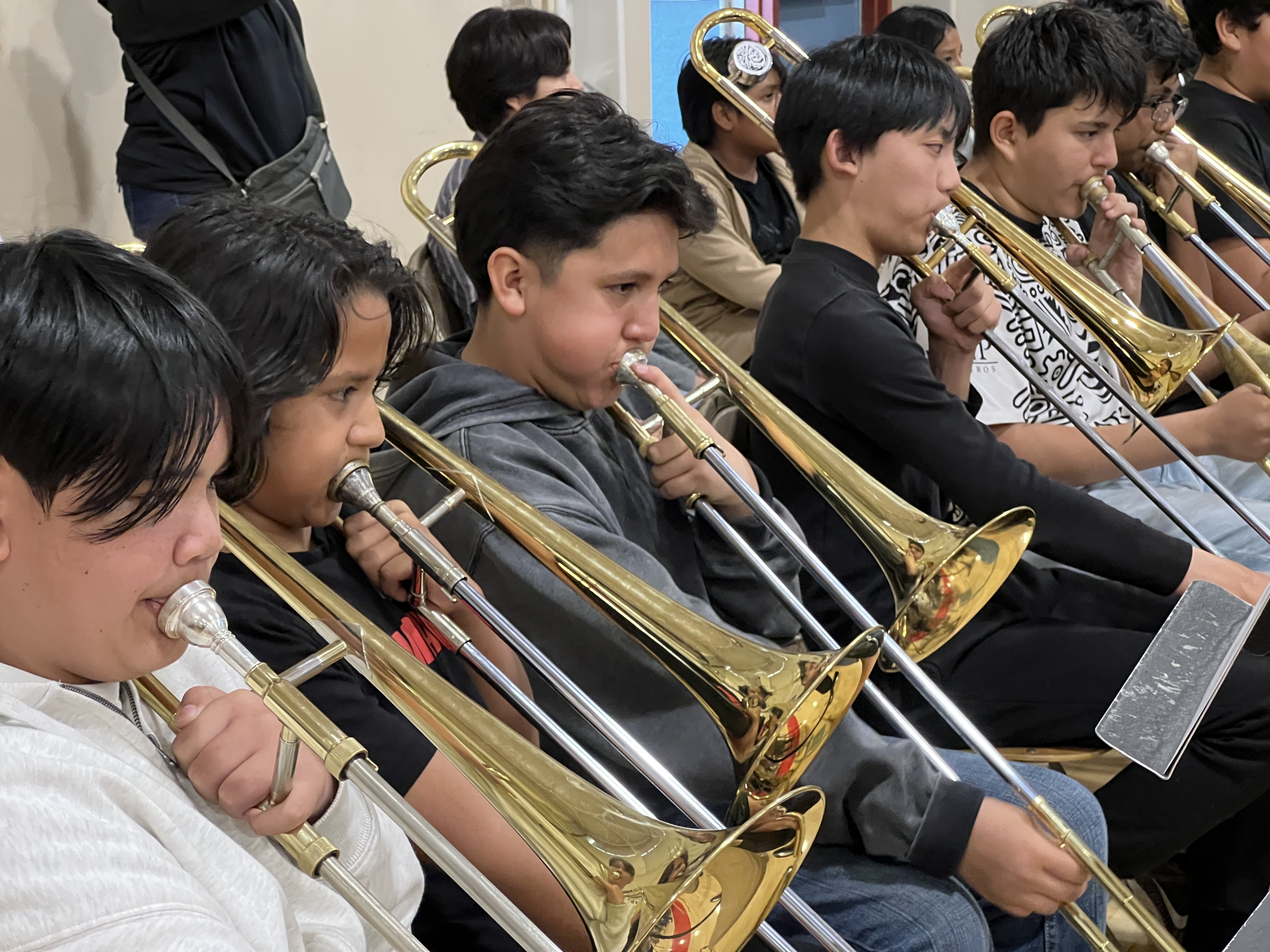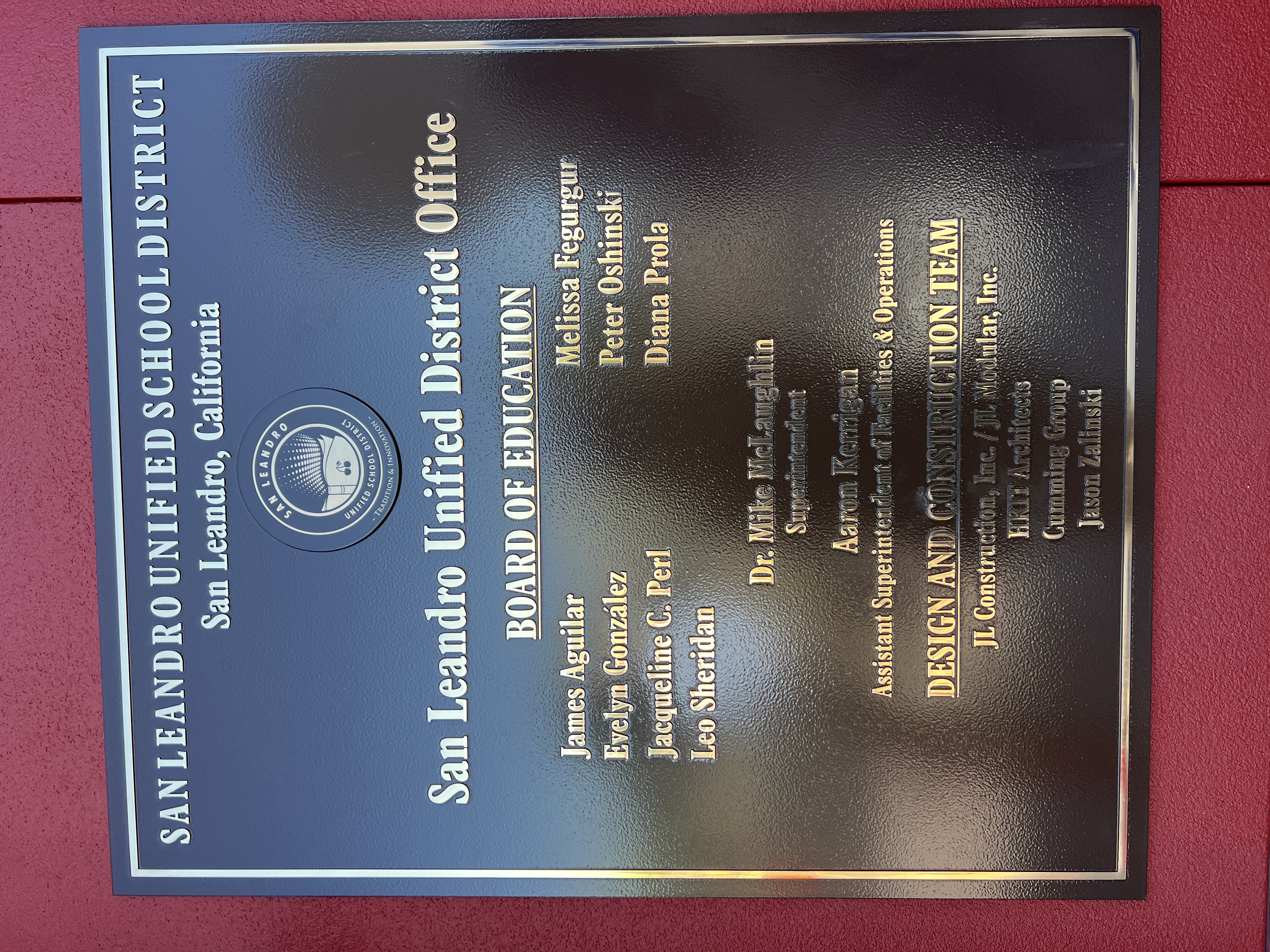Attendance Matters...
…to students
In many cases, absences from school are unavoidable due to health problems or other circumstances. However, chronic absenteeism can have a drastic impact on your child’s education. Children chronically absent in kindergarten and first grade are much less likely to learn to read by the end of third grade. By sixth grade, chronic absenteeism becomes a leading early indicator of school drop-out. A high-school dropout will earn, on average, 65% less than a high school graduate. Clearly, regular school attendance matters! |
…to our schools
New laws have changed how schools receive state funding. Schools can no longer receive money for students with excused absences. This means our schools can only receive funding for students who actually attend class or are enrolled in Independent Study. Absences, both excused and unexcused add up and can significantly reduce school funding. |
…to our county
Did you know that all students between the ages of 6-18 are legally required to attend school daily? The Alameda County District Attorney’s office takes regular school attendance seriously. They partner with districts and families to reduce chronic absenteeism and promote regular school attendance. |
California Education Code 48205 defines student absences as either excused or unexcused. Excused absences are typically unavoidable and most commonly include:
- Illness (including an absence for the benefit of the pupil’s mental or behavioral health)
- Funeral Services
- Quarantine
- Medical/Dental/Eye Care Appointments
- Cultural Ceremony or Event
For more information including a complete list of excused absences please refer to California Ed Code 48205
All other absences not referenced under California Ed Code 48205 are considered unexcused. Common unexcused absences include but are not limited to:
- Vacation
- Birthdays
- Visiting Relatives
- Oversleeping
- Childcare needs
- Car Trouble
Short Term Independent Study
If a student is out of school for five consecutive days and no longer than 20 school days for an unexcused reason (e.g. funeral, personal/family-related), parents should contact the school, at least 48 hours in advance, about arranging Independent Study. A school-approved Independent Study Contract is an educational alternative and is recorded as a valid absence, but it must be approved by the principal.
Confidential Medical Services (Ed Code 40610.1)
By law, a student may be excused from school for the purpose of obtaining confidential medical information without the consent of the student’s parent or legal guardian. Otherwise, it is the practice of the San Leandro Unified School District not to release students without parental consent.
Truancy vs. Chronic Absence

Whether truant or chronically absent the end results for students are the same. When students miss too many days of school they fall behind and struggle both academically and socially. We understand that unexpected circumstances and barriers may arise and negatively impact regular school attendance. SLUSD is dedicated to partnering with you to ensure your child has access to their basic right to an education. Please maintain open and honest communication with your child’s teachers and school office staff. The more we know, the better prepared we can be in supporting you and your child.
Helpful School Attendance Tips
- Call the school office as soon as you know your child will be absent
- Please schedule vacations to align with SLUSD’s Academic Calendar
- Schedule non-emergency appointments in the late afternoon
- Don’t let your child stay home unless it is absolutely necessary
- How sick is too sick to attend school? See the recommendations here.
Attendance Intervention and Support

What is SART?
SART is a School Site Team that includes the parent, student, Principal, Parent Facilitator, and other school staff as needed. The goal of this team is to identify possible solutions to improving the students’ attendance and/or behavior. At this meeting, all parties will have an opportunity to share and discuss ways to support healthy student engagement and attendance. Everyone will have an assigned role/responsibility to help ensure improved attendance and/or behavior. All resources, support services, and action items will be documented, reviewed, and signed by everyone at the end of the SART meeting.
Students will be referred to the district’s School Attendance Review Board (SARB) if they do not attend their SART meeting or if the student’s attendance/behavior does not improve after the implementation of the SART attendance contract.
Education Code Section 48263 – If any minor in any district of a county is habitually truant, or has irregular in attendance at school, as defined in this article, or is habitually insubordinate or disorderly during attendance at school, the pupil may be referred to the School Attendance Review Board
What is SARB?
School Attendance Review Board (SARB) was established by the California legislature in 1975 for the purpose of:
- Making a better effort to meet the needs of students with attendance or behavior problems.
- Promoting the use of alternatives to the juvenile court system.
To achieve these goals, the legislation provides for a multi-agency SARB which includes the following agencies:
- Children and Family Services
- Probation
- Law Enforcement
- Parents and/or other community representatives
- Community-Based Organizations
- Child and Welfare and Attendance Personnel
- School Guidance Personnel
- District Attorney’s Office
- Health Representative
SARB Process and Goals
- starts with the identification of attendance and/or behavior concerns followed by classroom, school site, and district level interventions
- finding solutions to unresolved student attendance and discipline problems by bringing together, on a regular basis, representatives of agencies that make up the board
- surveys available community resources to determine the appropriateness of their services and makes recommendations to meet the needs of referred students
- understand why students are experiencing attendance and behavior problems that have not been resolved
Specified Laws Related to Attendance
- Education Code, Section 48200. Students, between the ages of 6 and 18, are required to attend school full time, unless otherwise exempt.
- Education Code, Section 48263. Habitually truant and habitually insubordinate students may be referred to SARB.
- Education Code, Section 48292, and Penal Code, Section 272. Failure to attend school as required may result in the filing of a complaint against the parents with the District Attorney’s Office.





